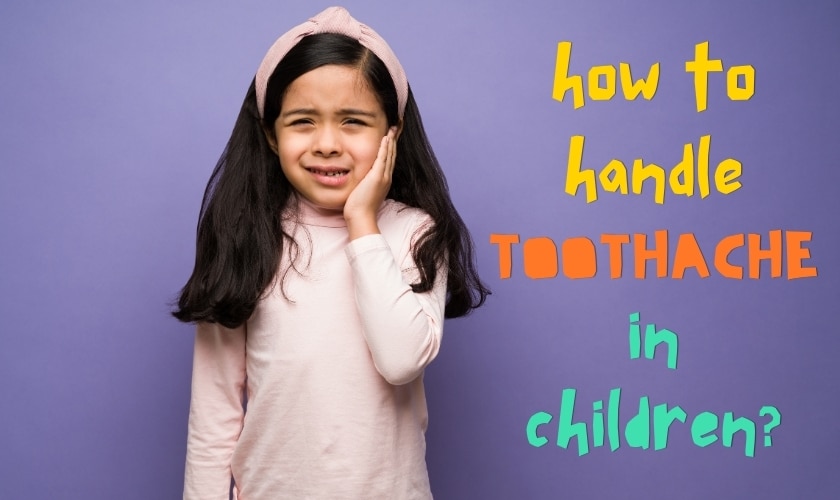Book now

Why Do Kids Get Toothache At Night?

Why Do Kids Get Toothache At Night?
The pitter-patter of tiny feet turning into frantic cries in the middle of the night – a scene no parent wants to witness. But if your child frequently wakes up with a throbbing toothache, you’re not alone. Nighttime toothaches seem to have a particular fondness for targeting kids, leaving them uncomfortable and parents scrambling for answers. Let’s delve into the reasons behind these nighttime dental dramas and explore ways to soothe your little one’s pain.
Why At Nighttime?
While toothaches can strike anytime, there are a few factors that might explain their prevalence at night:
- Heightened Pain Perception: During sleep, the body’s production of pain-relieving hormones like endorphins can decrease. This can make existing dental pain feel more intense.
- Increased Blood Flow: When lying down, blood flow increases to the head and neck region. This can put pressure on inflamed or irritated teeth, amplifying discomfort.
- Reduced Saliva Production: Saliva is crucial in fighting bacteria and keeping the mouth clean. At night, saliva production naturally decreases, allowing bacteria to thrive and potentially irritate sensitive areas in the mouth.
Common Culprits Behind Nighttime Toothaches:
- Cavities: Tooth decay is a major culprit. When bacteria break down sugars and starches in food, they produce acid that erodes tooth enamel. Cavities can expose sensitive dentin, the layer beneath the enamel, leading to sharp pain, especially when stimulated by cold or sweets.
- Sensitive Teeth: Worn enamel or receding gums can expose the dentin, making teeth sensitive to temperature changes and certain foods. This sensitivity can be exacerbated at night due to heightened pain perception.
- Untreated Toothaches: If a toothache goes untreated during the day, the pain might intensify at night when distractions are fewer. Existing dental problems like gum disease or an abscessed tooth can also cause throbbing pain that worsens at night.
- Teething: For younger children, the process of teething can be uncomfortable, especially at night when they’re trying to sleep.
- Grinding Teeth (Bruxism): Children who grind their teeth unconsciously, especially during sleep, can experience jaw pain and tooth sensitivity that might manifest as a toothache.
Easing Your Child’s Nighttime Woes:
- Comfort and Pain Relief: The priority is to soothe your child’s pain. Offer a cool compress on their cheek or a pain reliever appropriate for their age (consult your pediatrician for dosage).
- Oral Hygiene Routine: Gently cleaning the mouth with warm water or a mild saltwater rinse can help remove debris and reduce discomfort.
- Elevation: Raising your child’s head with a few extra pillows can help reduce blood flow to the head and potentially alleviate some of the throbbing sensation.
- Schedule a Dentist Visit: Don’t ignore a recurring toothache. Schedule an appointment with a kid’s dentist as soon as possible to diagnose the underlying cause and receive proper treatment.
Preventing Nighttime Toothaches:
- Consistent Brushing and Flossing: Instilling good oral hygiene habits early on is key. Brushing twice daily and flossing once a day removes plaque and bacteria that contribute to cavities and gum disease.
- Limit Sugary Snacks: Reduce sugary snacks and drinks, especially before bedtime, to minimize the risk of tooth decay and tooth sensitivity.
- Regular Dental Checkups: Schedule regular checkups with a kid’s dentist to ensure your child’s oral health is monitored and any potential problems are identified and addressed early on.
Ultimately, Nighttime toothaches can disrupt sleep and cause distress for both children and parents. By understanding the reasons behind them and taking proactive steps to prevent them, you can create a shield against these nighttime dental dramas. Remember, early diagnosis and treatment from a kid’s dentist are crucial in safeguarding your child’s oral health and ensuring restful nights for everyone. With consistent care and prevention, those nighttime toothaches can become a thing of the past, allowing your little one to sleep soundly and smile brightly throughout the day.
Frequently Asked Questions
Over-the-counter pain relievers can offer temporary relief for your child’s nighttime toothache. However, it’s crucial to consult your pediatrician for the appropriate dosage and medication type based on your child’s age and weight. Remember, pain medication only addresses the symptom, not the underlying cause. Schedule a visit with a kids dentist as soon as possible for proper diagnosis and treatment.
While not a substitute for professional care, some home remedies might offer temporary relief:
Apply a cool compress wrapped in a cloth to your child’s cheek near the sore tooth. The coolness can help numb the area and reduce inflammation. A gentle rinse with warm saltwater can help soothe irritated gums and remove debris that might be aggravating the pain. Raising your child’s head with extra pillows can help reduce blood flow to the head and potentially lessen the throbbing sensation.
Teeth grinding (bruxism) can be a culprit behind nighttime toothaches in children. The pressure from grinding can cause jaw pain and tooth sensitivity. If you suspect your child grinds their teeth, discuss it with a kids dentist. They can recommend a mouthguard to protect teeth and reduce discomfort.
The teething phase can present challenges for both infants and parents. Teething pain is often worse at night when distractions are minimal. To soothe your teething baby, try a chilled teething ring, gentle gum massage with a clean finger, or over-the-counter pain relievers recommended by your pediatrician.
The best defense is a good offense! Here are some ways to prevent nighttime toothaches:
Encourage regular brushing and flossing to remove plaque and bacteria that contribute to cavities and gum disease. Reduce sugary drinks and snacks, particularly prior to bedtime, to reduce the likelihood of tooth decay and tooth sensitivity. Regular checkups with a kids dentist allow for early detection and treatment of potential problems that could lead to nighttime toothaches.






